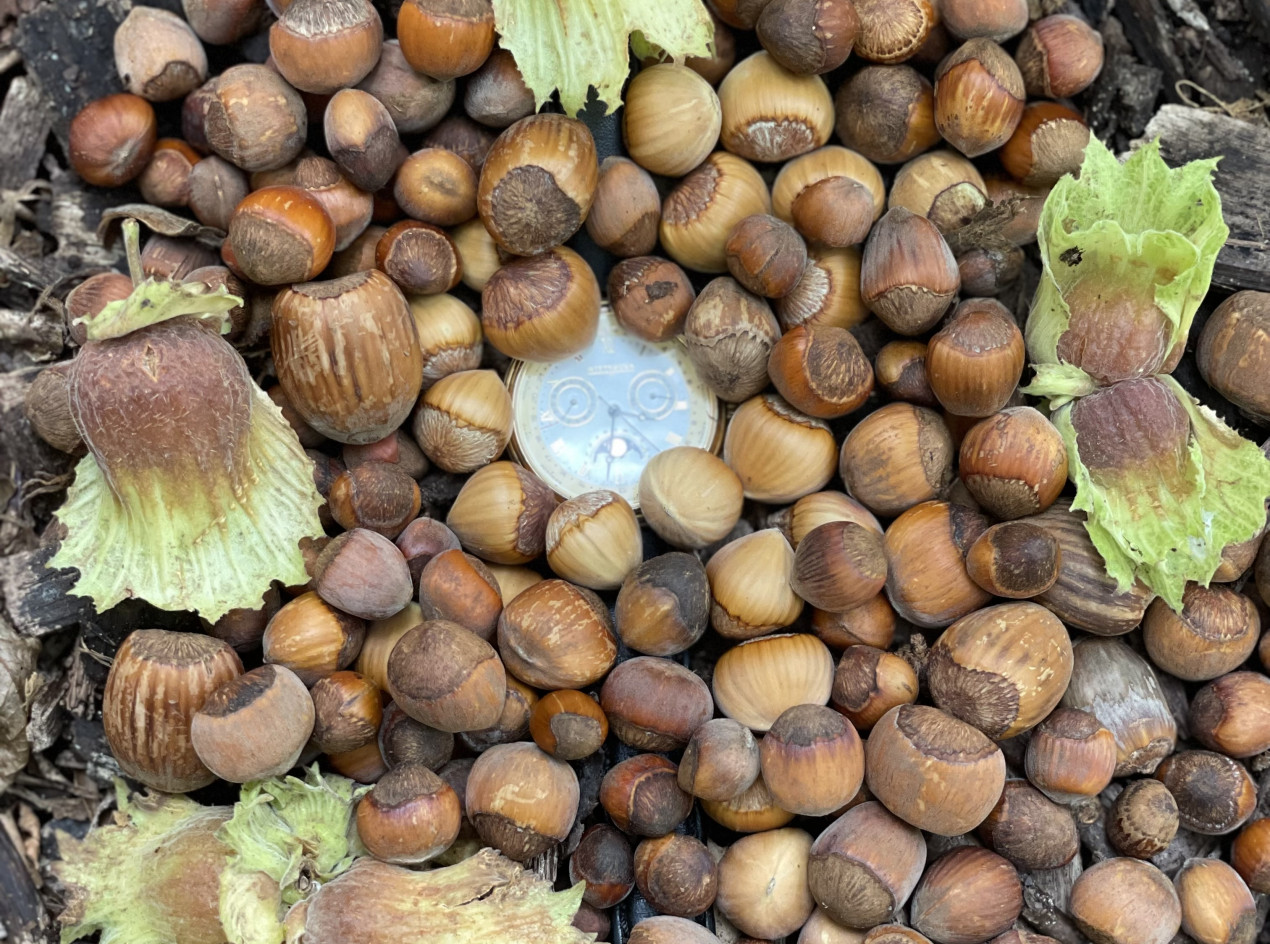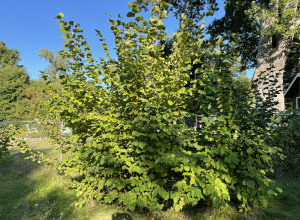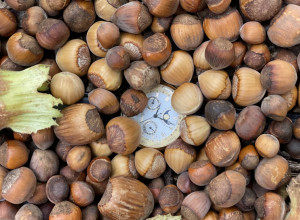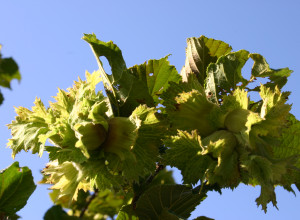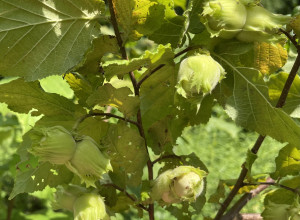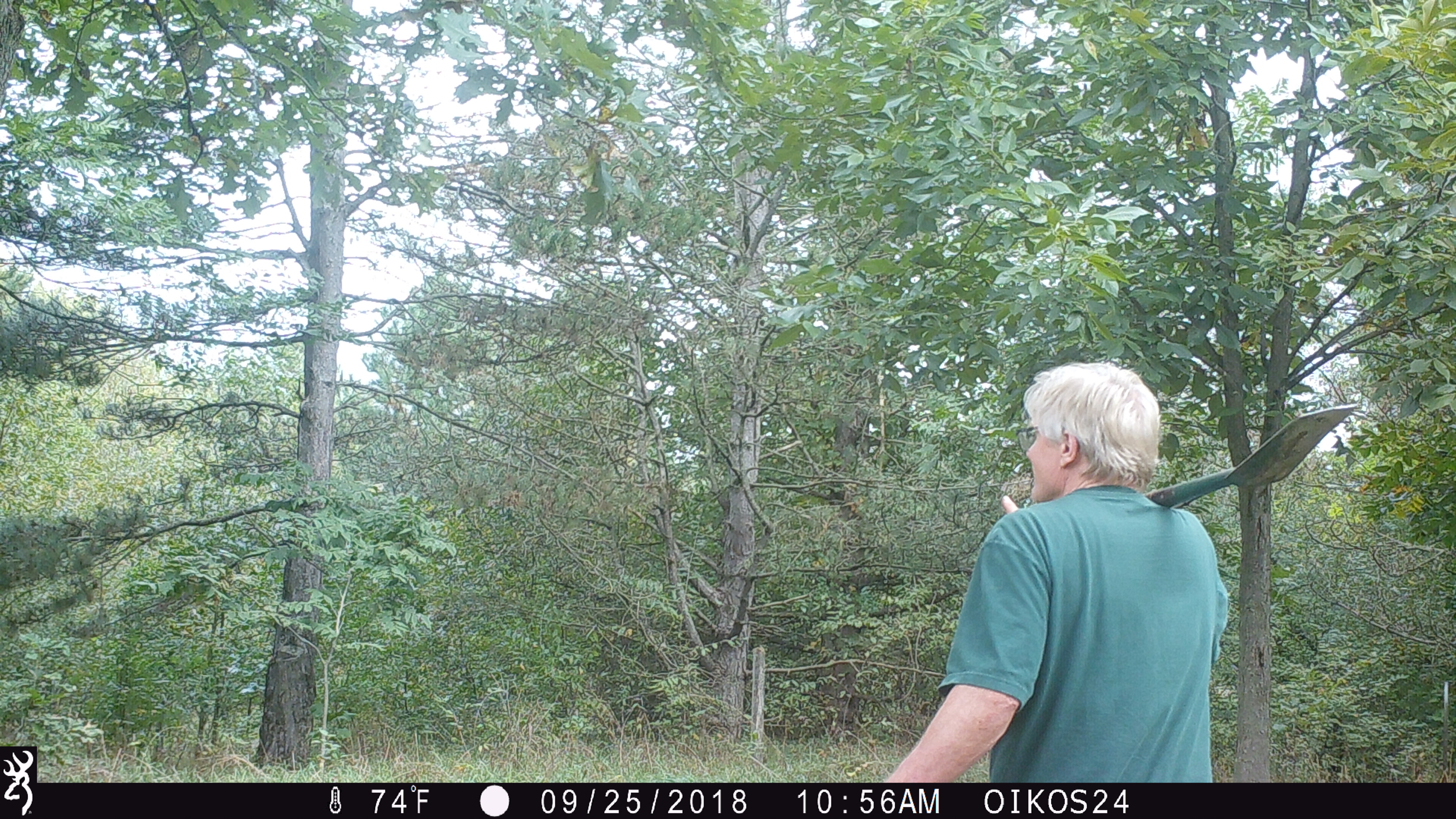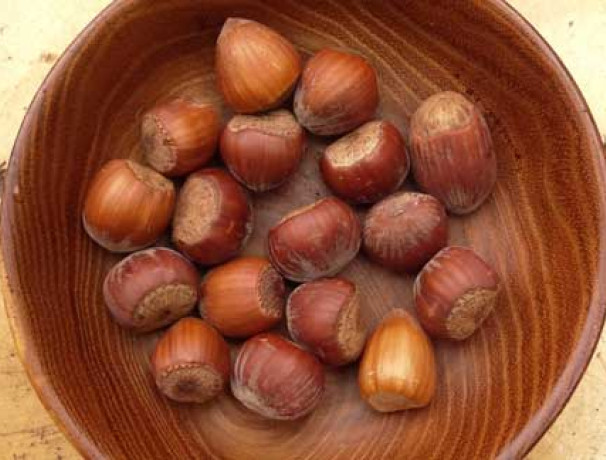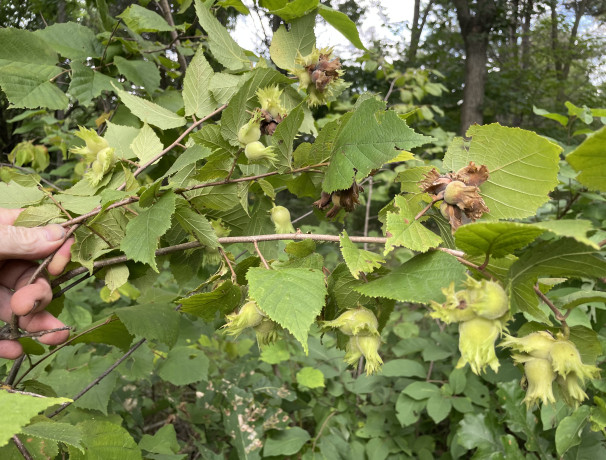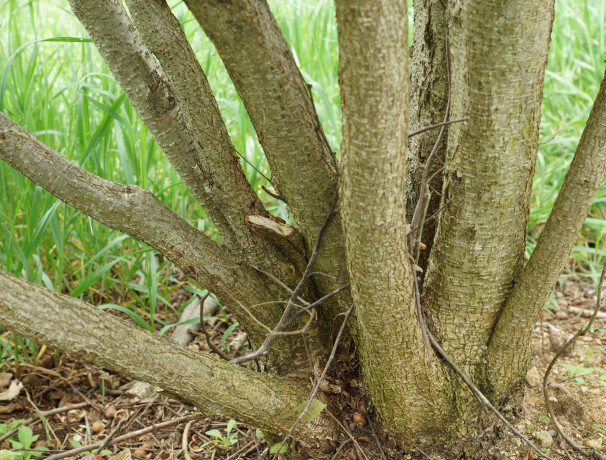Experience-Seeds-Knowledge-Plant Discoveries-Ecological Enrichment-Join Now Click Here!

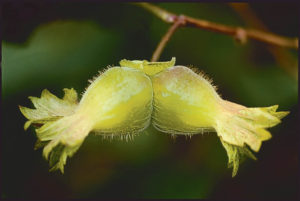

sold out (Cold Stratified Seeds) Precocious hazelnut represents a 30 year trial growing several thousand hybrid hazelnuts called filazels or hazelberts at my farm in southwestern Michigan. It was a one shovel at a time experiment with persistence and patience as a precursor to the selection process.
In the beginning the huge mortality of the seed strains called Gellatly, Slate, Geneva, Buchanan and Laroka revolved around resistance to filbert blight of which almost 100 percent of these did not make it past year 5. It was only later I found out from a research scientist that the overall genetic base of the hybrid hazels were extremely narrow in terms of immunity to filbert blight. As it turns out Michigan is home of the most virulent form of this blight making it really difficult to find resistant seedlings. As a result the results at first was dismal. It was a lot of trial and error leading to accidental discoveries.
Here is the back story. I was supplying the mail order trade with thousands of these hybrids with one year seedlings and when they went on with other plants and quit ordering I ended up with over 10000 plants with no where to go. (This is the normal operation procedure of the mail order companies of which they dump on their suppliers.) It was also was the perfect time to test these and other seed strains I was developing to see what nature had to offer in terms of healthy plants from a population. By year three the blight completely swept through my plantings and destroyed almost all of the plants except for 60 or so. This was the aha moment for me working with hazels. Now I had a stable population to work from that could be produced from seed. Ideally more plants would have survived that first grow out but I was committed to finding the best and most immune plants by then. I had a way forward.
The result: Precocious Hazelnut. As time went on the nut size was smaller than the hazelberts but so was the plant as well. They had to the ability to make runners and stolons which made it ideal for hand harvesting. The plants had shrunk in stature. Along with that came the ability to reproduce Precocious by runners making clonal propagation easier as well. More and more of the genetics of the American hazelnut came through and this proved overall best to the plants health and longevity including lateral bearing and clean foliage even in heat prone areas. Even though the nuts were smaller, the shells became thinner and easer to crack. To me this was a good solution. These were not cultivars competing with the Oregon hazelnut industry. That I did not want nor did I find that practical for the most part.
Precocious is a strain that combines the best of the American hazelnut with thinner shells and heavy lateral bearing. When we grew them from seed these characteristics continued with 100 percent immunity to filbert blight. In permaculture settings. Precocious hazelnuts can add to the genetic diversity of a population without the fear of the dreaded filbert blight coming back on weaker plants as well as supplying pollen for other American hazelnuts. Precocious hazelnut does not appear to cross with beaked hazels but will cross with itself and other hybrids and cultivars of hazelnut.
Today there are other hybrid hazels on the market. More than not, these are likely from the same seed sources I was using in the beginning. The problem with them may be their lack of testing over time. One university has started growing our Precocious hazels as a seed strain as well as for cultivar development. Why? They had seen the amazing yields in other grow outs of our seed strains in other locations. The immunity was also very high. Unfortunately, knowledge in the books stays in the books.
At our farm Precocious showed to have the highest yields per plant. The new hazels from Oregon are not sufficient here to repel disease and their seedlings are not adapted as well. Many other nurseries that grow hazels are often selected American hazels with thick shells and variable yields. These are not bad necessarily, it is just that they lack the vigor and lateral bearing tendencies found in the Precocious Hazelnut. Unfortunately grown from seed of Yamhill and other hazelnuts from Oregon have all died here. Precocious takes care of that and is available now. No need to wait another 30 years.
FOUNDATION SEED STOCK: My foundation seed stock allows you to freely name cultivars derived from Precocious hazels. When purchasing for the growing and selling of plants or future seed availability as a seed strain I am asking you to use the name 'Precocious Hazelnut" as well as 'developed by Kenneth Asmus of Oikos Tree Crops" as the source of the original germplasm.
VARIETIES DEVELOPED FROM PRECOCIOUS: Starting in 2022 and 2023, varieties will be released from my seedling populations. These selections will be based on blight immunity, small dwarf bushes, stoloniferous tendencies, heavy yields and thinner shells. Some of these selections are very close to the American hazelnut in characteristics but are easier to extract the nuts and use the nut crop because they fall out of the husks after ripening or have paper thin shells. Less attention is paid to nut size or other commercially important characteristics. The goal is develop a high yielding nut crop that could also double as a oil crop. The yield aspect is given the first priority which includes lateral bearing tendencies. Seeds will be sold with the scionwood or unrooted cuttings depending on the crop.
"Ecos" "My Regeneration" "Buttery" "Eco-Prolifico" "Flavorable" "Enlighten" "Eco-Magnifico"
Germination Requirements: Seeds were processed and de-husked starting on September 1, 2021. Around 1 percent of the seeds are blanks and I include extra seeds to make up for it. (Around 10 % more seeds are added.) We are now combining Ken's Select with the Precocious Seed as the differences between the two are small. Dormancy cold plus moisture started on January 1st, 2022.
For germination begin with a lightly moist Canadian peat moss so no water can be squeezed out with your hands. Let sit for a week at room temperature like that and then Refrigerate 90-120 days at 36-38 F. Do not freeze the seeds. Germination will begin around 90 days and will continue for 1 month or more. Plant seeds one inch deep in well drained soil. Best to use a type of soil mix that is not active in terms of decomposition as this can interfere with the seeds sprouting and destroy the embryo. There might be a portion of seeds that do not sprout the first year. This is normal with hazels and those can be treated like Prunus seeds in that you store them at room temperature through the growing season and do another dormancy period. Things to not do: soak, freeze, crack the nuts
Cold moist Dormancy began on January 1st in refrigeration. Dormancy will be complete if you continue it around March 30 to April 30th.
| Plant Specs | |
| Genus & Species | Corylus americana x avellana x americana |
| Seed Source | Michigan |
| Height (ft) | 10 ft. by 10 ft. |
| Pollination Requirements | Will cross with other individual Precocious seedlings as a seed strain or with other American type hazelnuts as well. Not usually self fertile. |
| Soil | Sandy loam or sandy soils are ideal. Will tolerate a wide range of soils to some extent including clay but not so much high ph soils. |
| Climate | Zones 3-8 Best in cold climates. |
| Ease of Cultivation | One of the easiest nut trees to grow from seed and rewarding every time I do it. As a seedling it is good in production and could generate many cultivars useful for oil as well as nut meats. The idea that this could somehow compete with highly bred cultivars is not really of value. The selection is based on a population level immunity to filbert blight and high yields of lateral bearing shrubs. The nut production is of value only if the population is there to help create a cultivar as well as to use as is. |
Related Plants
Ecos American Hazelnut Seeds
SOLD OUT Selected from our most precocious ECOS plants using only the heaviest bearing types includi..
$0.00
Dwarf American Hazelnut Seeds
SOLD OUT Natural dwarf form of American hazelnut found within populations at..
$340.00
Trazel Tree Hazel Seeds
Sold out Trazels go back to the early days of nut growing using the seed st..
$180.00
